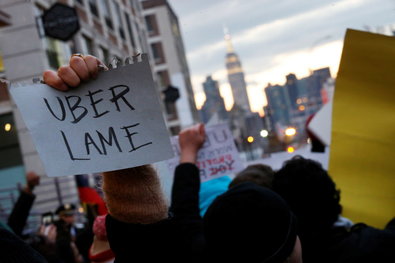Social Media Boycotts Succeed When They Mirror a Motion

Boy, oh boycotts! Do they work?
Trick query. It all depends on what you imply by “work.”
If the goal is to harm firm gross sales, boycotts hardly ever succeed. But when the goal is to undermine firms that stand in the best way of a motion, there’s a larger probability {that a} boycott might tarnish a model.
To get a boycott off the bottom, consciousness and consideration of the difficulty should unfold. Intent to boycott should be adopted up by motion. Lastly, as soon as a boycott is underway, the leaders of it should discover methods to maintain the trouble.
That may be laborious, contemplating the variety of folks concerned in a boycott inevitably decreases over time.
Largely, that is as a result of folks have busy lives and loads of their very own private issues. Information of a boycott has to chop by means of the non-public. It has to resist the continuously altering streams of data on the web to actually acquire traction. And reminiscence fades quick. The accelerated 24-hour information cycle has grow to be a form of Catch-22 for boycotts: Social media will be very helpful for spreading consciousness of a boycott — however the hourly nature of the information cycle can bury it throughout the subsequent day or week.
Social media will be very helpful for spreading consciousness of a boycott — however the hourly nature of the information cycle can bury it throughout the subsequent day or week.
Even when a boycott stays within the information, robust opinions will not be the identical as motion. It’s at all times simpler for somebody to specific outrage than inconvenience him or herself. In a world the place everyone seems to be a one man/one lady P.R. division on social media platforms like Fb, Instagram and Twitter, “ethical peacocking” — outrage on social media that’s not mixed with motion — turns into handy and costless.
Outrage comes and goes, and so do boycotts. Firms might undergo brief gross sales dips, however social media boycotts seldom harm the enterprise backside line of organizations in the long term.
Nevertheless, there’s a very robust exception. If the last word supply of a boycott is continually featured within the 24-hour information cycle — say, as a result of he’s president of the US — and continues to have interaction in controversial and outrageous habits, the boycott has an elevated probability of residing past its common few days.
If the boycott displays a motion — slightly than a second — it will possibly change the world round it.
Be part of Opinion on Facebook and comply with updates on twitter.com/roomfordebate.
Boycotts Pressure Firms to Confront Client Beliefs

Within the ebook “The Bare Company,” Don Tapscott and David Ticoll study novel enterprise dangers which have popped up with the web. The democratization of free info and rise of social media means enterprise practices will be found and scrutinized on a a lot wider scale.
“You are going to be bare,” the authors warn companies, “so that you’d higher be buff.”
At a minimal, meaning contemplating prospects and staff past tomorrow’s revenue margin.
As folks take to the streets to protest the actions of the brand new president, C.E.O.s of firms are being challenged to take a stand — one thing many have been reluctant to do within the face of market pressures to maintain one’s head down and concentrate on the numbers.
The problem as we speak for all firms is obvious: Residents are in search of management on problems with actual consequence, and they’re aligning their {dollars} with their beliefs.
However for some companies, taking a stand is nice for the model. Tech C.E.O.s are talking out forcefully in opposition to the visa ban as a result of they rely on one of the best abilities and expertise, regardless of the nationality. Different tech staff might consider it’s morally incorrect to show away refugees and authorized residents — or, a minimum of they’re assured that their prospects really feel that means. There’s security in numbers in fact, and its greatest when firms can articulate why a difficulty issues to their enterprise backside line.
Nonetheless, cultivating optimistic model identification has grow to be undoubtedly essential for consumer-facing firms. Take #DeleteUber. The actual goal of the boycott that went viral gave the impression to be to punish a enterprise — for putting revenue over neighborhood and/or for showing to help President Trump’s refugee ban on seven Muslim-majority international locations. The boycott couldn’t reverse President Trump’s govt order, nevertheless it did trigger Uber’s C.E.O. to drop out of President Trump’s enterprise council.
The ability and velocity of social media has allowed campaigns to evolve from specializing in the implications of a product — just like the legendary Nestlé toddler formulation boycott within the Nineteen Seventies — to labor-related points which can be throughout the management of the company. From there, they’ve unfold to incorporate extra complicated international considerations like youngster labor and local weather change. Boycotts over a difficulty like deforestation may require a radical form of company from an organization if it needed to disrupt its whole provide chain to make actual progress.
However some firms see actual market benefits on this client pattern. Levi Strauss and Starbucks, for instance, have gotten out forward on points like H.I.V./Aids and water shortage to assist domesticate optimistic model identification. They did not watch for a protest or boycott: They took a preemptive ethical stance.
For mass market manufacturers, like Pepsi and McDonalds, that street will be extra treacherous. Nonetheless, to deal with client calls for — usually articulated by a classy NGO working to corral public opinion — firms usually tie their model to huge social points, like human rights. These initiatives can require actual modifications for firms, nonetheless, together with a change in how they supply their merchandise.
The problem as we speak for all firms is obvious: Residents are in search of management on problems with actual consequence. These points are now not confined to the poll field. And shoppers are aligning their {dollars} with their beliefs.
The reply for companies might require new types of affiliation through which brave C.E.O.s can rise up and be counted.
There’s a problem for shoppers, too. They have to distinguish between the businesses that really push optimistic social change and people who simply pay lip service to it.
Be part of Opinion on Facebook and comply with updates on twitter.com/roomfordebate.

